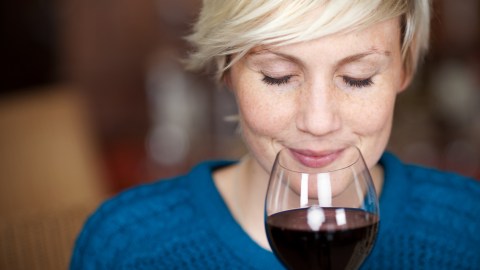What Wine Tastings Tell Us About Our Prejudices

What’s the Latest?
If you’ve ever tasted wine in the wrong company, you may have experienced a disquieting undercurrent in the conversation. Many of the biases we have in regard to leisure, status, and money–and most people’s desire for all three–find the wine glass to be a suitable vehicle. But as Columbia University neuroscientist Daniel Salzman has found, what we (are told to) expect out of wine is often what we get in return. For example, if we are told a particular wine is artisanal and another is more mechanically produced, we are more likely to grade the artisanal wine as better tasting and more expensive.
What’s the Big Idea?
No assessment or judgement occurs in a vacuum. To every experience we bring either conscious or subconscious influences, say neuroscientists Lauren Atlas and Tor Wager. How each glass of wine tastes, in an example of conscious influence, is informed by all the glasses of wine we’ve ever had before. Subconsciously, our experiences are colored by how our day is going, what the weather is like, whether our partner is upset with us or not, etc. But seeking to eliminate these biases in favor of an purely objective experience would be a mistake. “[A] product…isn’t just the object itself: it’s everything we know about it.”
Read more at the New Yorker
Photo credit: Shutterstock





